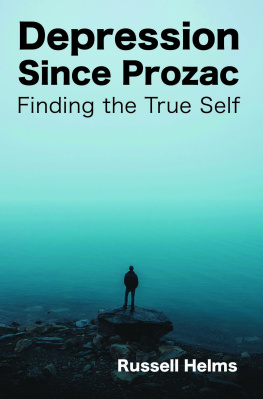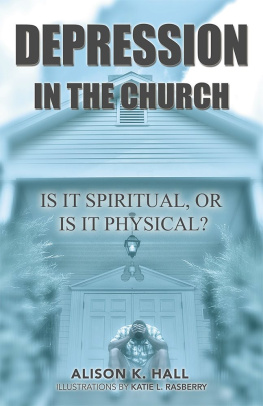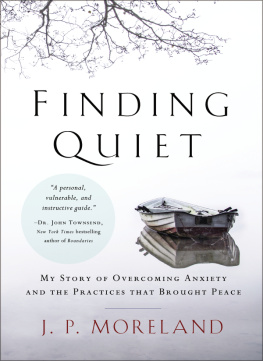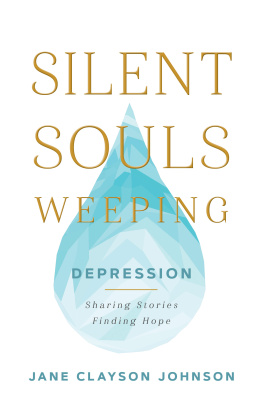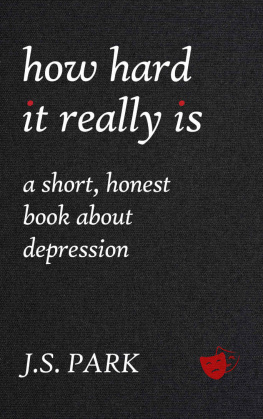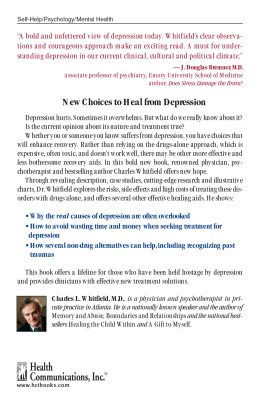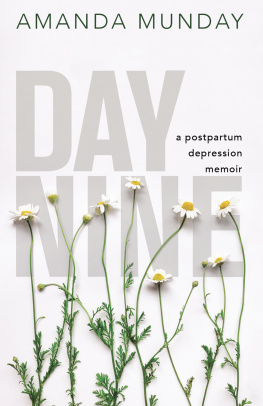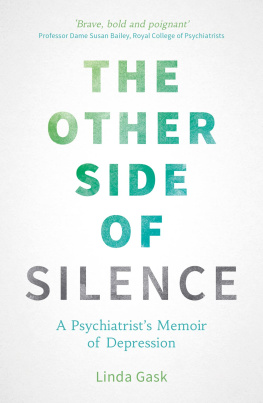W ITH S IGHS
T OO D EEP
FOR W ORDS
GRACE AND DEPRESSION
A. ROBERT HIRSCHFELD.

Copyright 2020 by A. Robert Hirschfeld
All rights reserved. No part of this book may be reproduced, stored in a retrieval system, or transmitted in any form or by any means, electronic or mechanical, including photocopying, recording, or otherwise, without the written permission of the publisher.
Unless otherwise noted, the Scripture quotations are from New Revised Standard Version Bible, copyright 1989 National Council of the Churches of Christ in the United States of America. Used by permission. All rights reserved worldwide.
Page 94: Prayer from THE PAST by Galway Kinnell. Copyright 1985 by Galway Kinnell. Reprinted by permission of Houghton Mifflin Harcourt Publishing Company. All rights reserved.
Church Publishing
19 East 34th Street
New York, NY 10016
www.churchpublishing.org
Cover design by Marc Whitaker, MTWdesign
Typeset by PerfecType Design, Nashville, Tennessee
Library of Congress Cataloging-in-Publication Data
Names: Hirschfeld, A. Robert, author.
Title: With sighs too deep for words : grace and depression / A. Robert Hirschfeld.
Identifiers: LCCN 2019056064 (print) | LCCN 2019056065 (ebook) | ISBN 9781640652606 (paperback) | ISBN 9781640652613 (epub)
Subjects: LCSH: Depression, Mental--Religious aspects--Christianity. | Depressed persons--Religious life. | Joy--Religious aspects--Christianity.
Classification: LCC BV4910.34 .H57 2020 (print) | LCC BV4910.34 (ebook) |
DDC 248.8/625--dc23
LC record available at https://lccn.loc.gov/2019056064
LC ebook record available at https://lccn.loc.gov/2019056065
To all the saints still striving,
and to all the saints at rest.
D EPRESSION
AND J OY
T he stigma of having any kind of mental illness has made me, like countless others, do my best to hide the fact that I live with depression. I cant help but wonder how those I admire, respect, love, and serve as a bishop think of me when I tell them I need to visit a therapist and that I live with a propensity for depression. Will they ascribe decisions or statements or positions I have taken, or mistakes I have made in my leadership and pastoral care, to a compromised mental state? No doubt, that possibility always exists, though perhaps not as much as I often fear. More likely, people who disagree or take issue with the ways I have been an ordained minister and leader in the church have plenty of other reasons to complain. They may disagree with the way I approach scripture or how I exercise episcopal authority. Thus far, at least, it has not been depression that might lead my sibling Christians to ask if the vocation I now inhabit is the right fit. Apart from me, it has only been Rocky, our black dog, who has questioned me openly about whether this bishop thing is of God or of someone or something else. And Rocky does that by staring intently at me with sighs too deep for words when I dont feel like throwing a stick in the backyard.
The truth is I am living with depression. And the emphasis is on the living with depression. Though almost every cell of my mind and body tells me not to share this truth with anyone, I have come to be convinced of the value of sharing this truth about myself with anyone who may find themselves in a similar state. We tell our stories because almost as soon as the words come out of our mouth we see a nod of the head, a softening of the eyes, a relaxing of the tension in the space between us. Our stories show others who we are, and virtually every time I have chosen to share something of my own struggle with someone who is herself burdened, it has been received as a lightening of that weight. For me, these liftings of the load of suffering are tangible evidence of the truth of the Gospel. John the Evangelist opens his gospel with:
In the beginning was the Word, and the Word was with God, and the Word was God.... All things came into being through him, and without him not one thing came into being. What has come into being in him was life, and the life was the light of all people. The light shines in the darkness, and the darkness did not overcome it.
John 1:15
I interpret the original Greek, logos, in a more fulsome way than merely word. It could also be heard as story or narrative. When I hear your story, and receive it in my heart, a connection is established that inevitably changes me and, I believe, changes you. The en-flesh-ment of God is how Gods own story inhabits our own, and our own stories are brought back to God. When you and I share the narratives of our pains and struggles, our joys, accomplishments, and failures, we are, whether we acknowledge it or not, participating in the ongoing incarnating, suffering, resurrecting, and ascending work of God. In the telling of our stories, our own logos, God sends light upon us. Quite often, the light is just a flicker, a pinpoint, in the vast void. I have come to see in those meager piercings of the veil enough to hold on. They have been sufficient to teach me how to live with this disease.
Sometimes the light shining in the darkness takes the form of metaphor or images that catch the eye of my soul. Parables are literally disparate and unlike things thrown together to create new meaning. A treasure discovered in a field thrown together with the Realm of God. A mustard seed and the Realm of God. Who would think that those throwing togethers of Jesus have such world-changing power? And yet, we tell those stories continually because we crave to have our imaginations shaped by them and to see this world with the same heart-sight of Jesus. The sheer volume of Jesuss parables seems to me to give us permission to see our own parables. Here is one that I often see that gives me hope in Gods healing.
In the woods behind our home stands a row of sugar maples that grow along an abandoned knee-high stone wall. The wall and trees probably formed a boundary for a pasture now overrun with new-growth hardwoods and hemlock. There are also rusty vestiges of a string of barbed wire, now broken and detached from the rotted cedar fence posts.
I occasionally visit one particular sugar maple that has grown around the barbed wire that once rubbed against its bark, such that the wire is now embedded in the tree. Some farmer thought of the tree as a conveniently planted post; over time the maple incorporated the steel barb into its heartwood. The wire is broken and detached on each side of the tree, but the life force of the tree, flowing from root to leaf and back again, has proven more resilient than the wound of those rusted barbs.
The tree tells me, every time I pass by it, that it is possible to live, grow, and even flourish with the wounds of this life. When looking at this tree, I see also the Tree of Life on which our Lord was pierced. I see within me wounds that cause me such grief at times and that wont leave me. They rest within me, like barbed wire, forcing me at times to be still and silent so as to avoid further pain. The tree has learned to live with its dis-ease. I am called to do the same.
I imagine that the sugar maple tree recognizes me when I visit. I often recognize similar pain in the faces of many I encounter in the church and in the world. I deeply hope that the sharing of my story offers a hint of recognition and compassion for those who are suffering. My prayer is that in these pages they can find some comfort in being recognized and then have more hope to keep walking.



